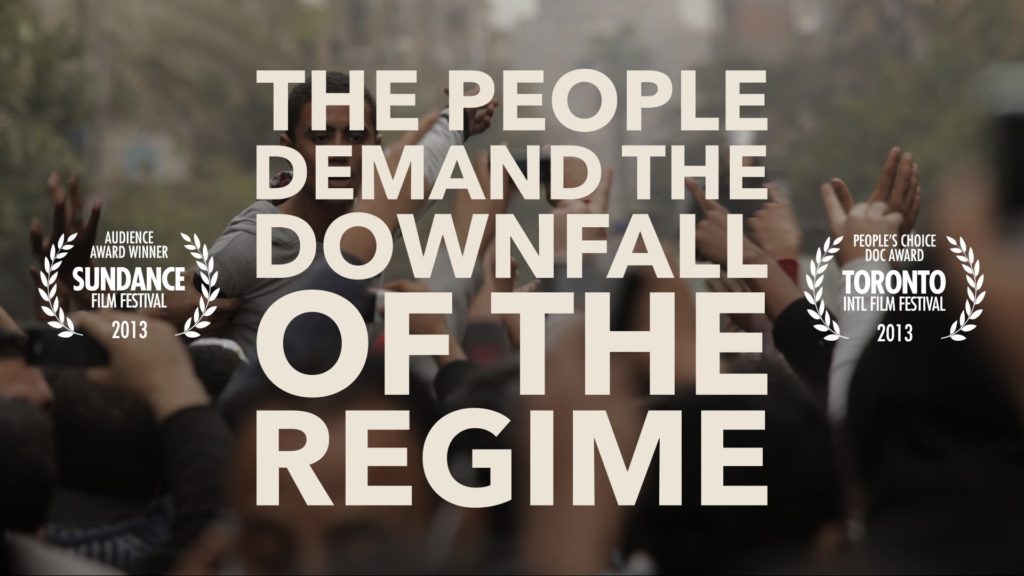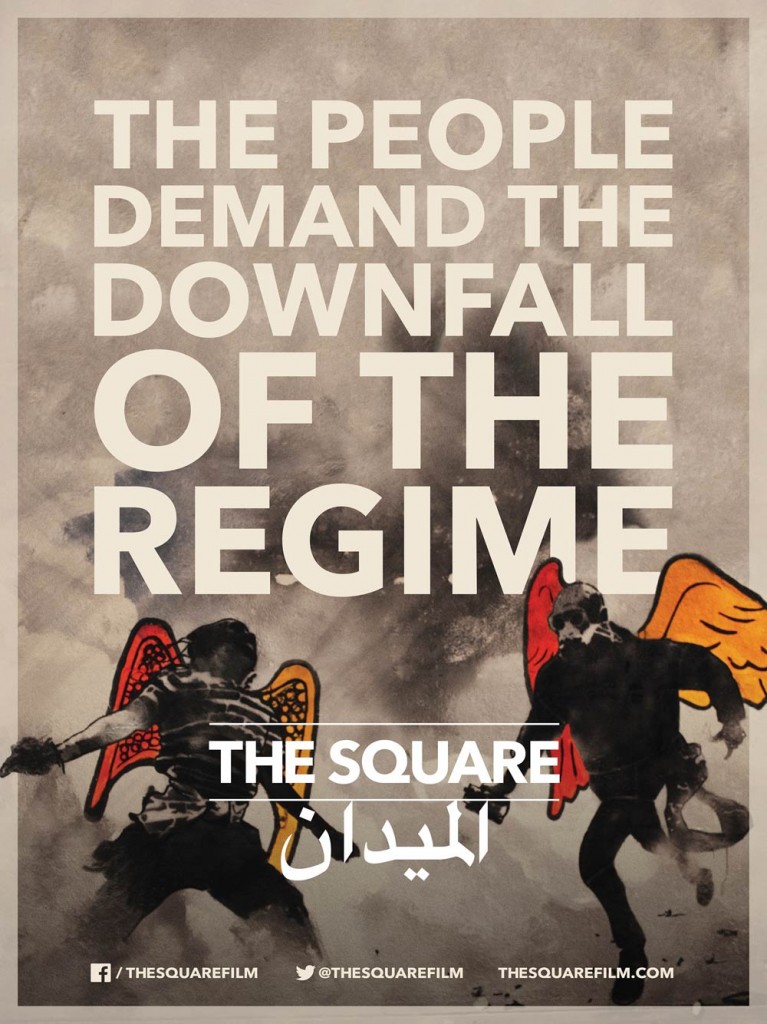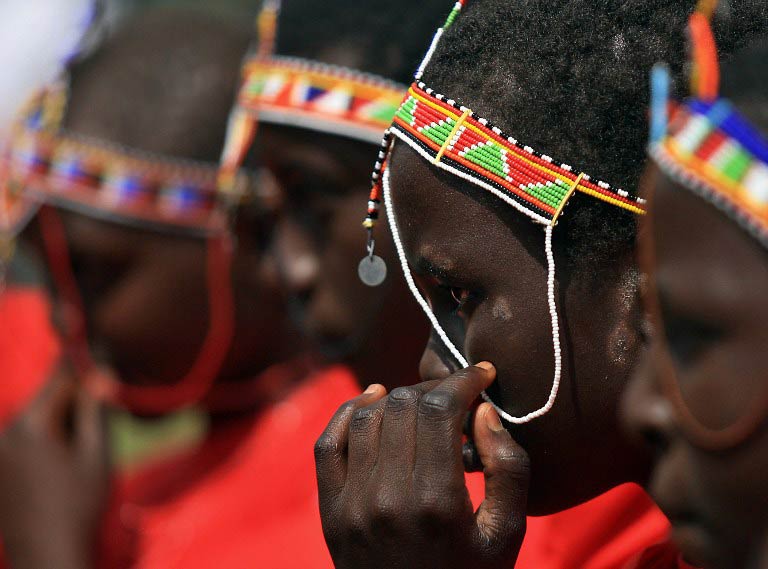Directors of Egypt’s first Oscar-nominated film will be walking the red carpet at the Oscars ceremony this weekend in Los Angeles, but most Egyptians have yet to see the hard-hitting movie that chronicles the country’s unrest over the past three years.
Far from being widely celebrated in Egypt, the film has not been shown at Egyptian film festivals or theaters after running into problems with censorship authorities. The filmmakers say they have been blocked because of their portrayal of the country’s military-backed governments. They still hope to get approval for wider distribution.
“It’s a kind of politics disguised in bureaucracy,” said Karim Amer, the film’s producer, taking a line that one of the film’s central character uses to describe the government’s counter-revolutionary actions.
The Square, named for Tahrir, or Liberty Square, is built around the geographic focal point of the uprising, where millions of Egyptians gathered to protest Hosni Mubarak’s regime, the rule of the generals who succeeded him and now-deposed Islamist President Mohammed Morsi. It recounts the country’s recent turmoil, beginning when Mubarak stepped down in 2011 through August 2013, right before security forces stormed two protest camps of Morsi supporters, killing hundreds.
The filmmakers tell the story through the eyes of three protesters hailing from different backgrounds. The self-described revolutionaries are Ahmed Hassan, a streetwise idealist; Khalid Abdalla, a British-Egyptian Hollywood actor raised abroad by his exiled activist father; and Magdy Ashour, a member of Morsi’s Islamist group, the Muslim Brotherhood, which has been outlawed and labeled a terrorist organization by the government installed by the military.
The movie follows their ideological trajectories, from hope and exuberance to disappointment and disillusion.
Ashour grows apart from the Brotherhood. He goes to protest in the square even after the group has prohibited members from demonstrating because, he says, the demands of the revolution have still not been met by the country’s interim leaders. Abdalla struggles to convince his exiled father that his activism will bear fruit, and Hassan suffers a head injury while throwing rocks at security forces and falls into a depression.
“The good and free people are being called agents and traitors, and the agents and traitors are being called heroes,” Hassan narrates over scenes of ambulances carrying away wounded protesters.
The film’s director, Jehane Noujaim, who grew up in Egypt, said she wanted to tell the story in a way that would let viewers in 50 or 100 years feel “that energy and that spirit of being in the square.”
Depiction of the military
The footage includes graphic images of bloodied bodies getting smashed by military vehicles, police dragging a protester’s limp body across the street and other scenes of brutality. At one point, a protester kneels on the sidewalk, weeping, with the blood of comrades on his hands.
“Our army is killing us. They are killing us,” the protester says. “They’ve forgotten Egypt.”
That depiction of the Egyptian military, which removed Morsi in July, is the reason the filmmakers believe the film has not been licensed for showing in Egypt.
But the project has gained acclaim in the West, winning audience awards at the Sundance Film Festival and at Toronto and Montreal festivals. It was acquired last year by subscription service Netflix.
In Egypt, it’s only available through YouTube and illegal downloads. After the academy announced the Oscar nominations, the film was hacked and released on the Internet. Amer estimates that more than 1.5 million people have watched it online.
“What’s been fantastic is to see the overwhelming ability of the internet to show truth from fiction,” he said.
Censorship authorities
Ahmed Awad, undersecretary to the Minister of Culture and head of censorship, told The Associated Press that the film has not been banned in Egypt for any political reasons. He said it was not shown because the film’s producers did not file the proper paperwork. He called the filmmakers’ accusations of repression “propaganda” designed to attract more attention.
“I am very happy about the Oscars, because it’s a very high level of art,” Awad said. “We are not against the film, but there are laws. I can’t make exceptions.”
Noujaim said that the team submitted the film to censorship authorities in September and received verbal permission to show it at a festival. But, she explained, the film never received an official letter to that effect, and the filmmakers did not feel comfortable proceeding without a formal permit given the tense political climate. She said they are appealing and submitting additional paperwork.
Some Egyptians who have seen the film say it is designed more for educating a Western audience than interpreting the country’s recent history, that it glosses over some events and does not capture the nuance of post-revolutionary politics.
Joe Fahim, an Egyptian film curator and critic, said the film is not an artistic masterpiece, but he believes it’s an important film for Egyptian audiences because it can serve as a record of the country’s political upheaval.
“It’s a reminder of the turbulent history of the past three years,” Fahim said.
Noujaim, who last month received a Directors Guild documentary award for The Square, said the film is ultimately an ode to the activists who made the revolution happen.
“That’s the only thing that’s ever worked – a dedicated few that stick to their principles, stick to every battle, and once in a while, they’re able to inspire the majority,” she said.
Despite the setbacks, Amer added, what’s fundamentally changed in Egypt is that “the young Egyptian voice that’s been born in that square is unwilling to give up, and I think that’s what our film chronicles and shows.” – Sapa-AP









